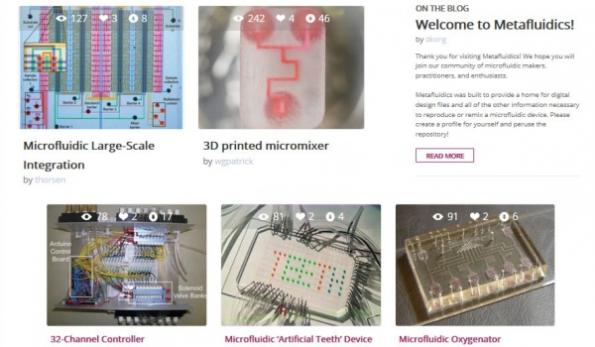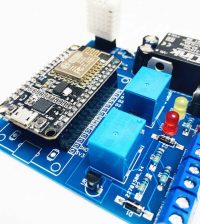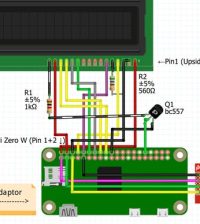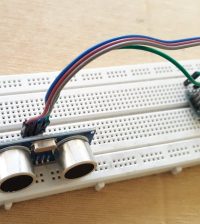- makeITcircular 2024 content launched – Part of Maker Faire Rome 2024Posted 2 weeks ago
- Application For Maker Faire Rome 2024: Deadline June 20thPosted 2 months ago
- Building a 3D Digital Clock with ArduinoPosted 7 months ago
- Creating a controller for Minecraft with realistic body movements using ArduinoPosted 7 months ago
- Snowflake with ArduinoPosted 8 months ago
- Holographic Christmas TreePosted 8 months ago
- Segstick: Build Your Own Self-Balancing Vehicle in Just 2 Days with ArduinoPosted 8 months ago
- ZSWatch: An Open-Source Smartwatch Project Based on the Zephyr Operating SystemPosted 9 months ago
- What is IoT and which devices to usePosted 9 months ago
- Maker Faire Rome Unveils Thrilling “Padel Smash Future” Pavilion for Sports EnthusiastsPosted 10 months ago
Metafluidics.org: the open source website for lab-on-a-chip devices

The site, Metafluidics.org, is a free repository of designs for lab-on-a-chip devices, submitted by all sorts of inventors, including trained scientists and engineers, hobbyists, students, and amateur makers. Users can browse the site for devices ranging from simple cell sorters and fluid mixers, to more complex chips that analyze ocular fluid and synthesize gene sequences.
The researchers modeled their Metafluidics site after popular open-source repositories such as GitHub and Thingiverse.
The MIT-designed open-source website also serves as a social platform for the microfluidics community.
“There’s been quite a bit of sharing of different types of information around synthetic biology,” Kong, director of the MIT Media Lab’s new Community Biotechnology Initiative, observes. “So this kind of larger open-source movement in biotech is important, and we’re hoping to fill this key part of the ecosystem that’s specifically related to hardware.”
The team worked with Bocoup, an open-source software consulting company, to design an open-source platform to share microfluidic designs. To access the free site, users fill out a brief profile to log in, after which they can browse through featured devices or search the site for specific microfluidic functions.
“Paper microfluidics, 3-D-printed and soft lithography chips, all these techniques require that digital design file,” Kong says. “That’s the key thing we’re making available for the first time to the larger community.”
“We’re reaching out to major pioneers and leaders in the broader field and curating collections of their design files,” Kong says. “Hopefully this will inspire people to make the next generation of [microfluidics] parts.”
The researchers submitted a novel device to the site to demonstrate the open-source platform’s potential for use in synthetic biology. Using common microfluidic parts and an open-source controller, or valving system, the team designed a genetic circuit assembly device—a chip that automatically combines DNA fragments to form a new genetic sequence capable of performing a new function when embedded in a living cell.
Click here to find out more about Metafluidics.org.















